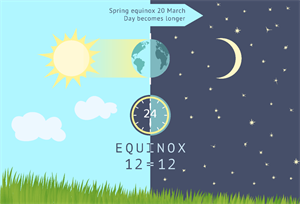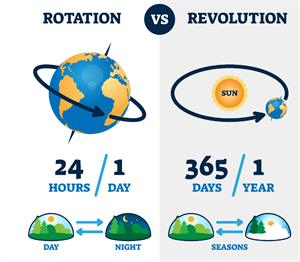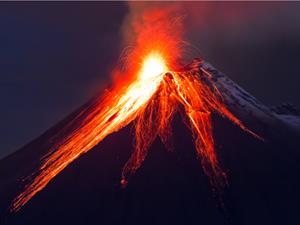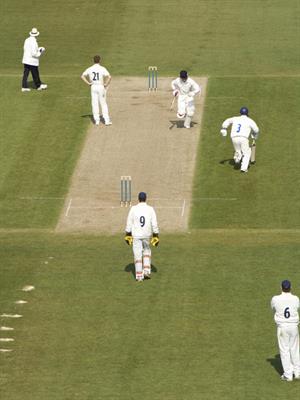PDF chapter test TRY NOW
Change is constant. A process in which a substance becomes a different one from what it was earlier. The difference in the size or shape of an object is termed as 'change'.
Example:
Day turns to night, growing crops in the agricultural field, falling of leaves from trees, blooming of flowers, etc.
Types of changes based on periodicity: Changes are classified as periodic and non-periodic changes.
1. Periodic change: Periodic changes are changes that occur at regular intervals of time.

Periodic changes related to time
The below are some examples of periodic changes:
Occurrence of day and night:

The \(24\) hours clock shows the difference in day and night, which is an example of periodic change.
Heartbeat:

The heartbeat for a minute is around \(60\) to \(100\) beats for an average person.
Clock bells every hour:

The alignment of the minute and hour needle of the clock for every hour and second is an example of periodic change.
Rotation and revolution of the earth:

The rotation in \(24\) hours makes the changes in day and night on earth. The revolution of earth for \(365\) days around the sun makes the changes in years.
Seasonal changes:

The changes in seasons such as summer, winter, spring, and monsoon are also examples of periodic changes.
2. Non-periodic change: Non-periodic changes occurs randomly without any time. Natural calamities are the best examples of these types of changes.

Non-periodic changes do not depend on the time
Here are some examples of non-periodic changes:
Eruption of a volcano:

The eruption of a volcano is an example of non-periodic change as it occurs unexpectedly and the reoccurrence is not in a timely manner.

The running between the wickets is an example of non-periodic change as it depends on the batsman and the ball placement in the field. Playing dodgeball:

In this game, the ball is thrown, and the person in the centre jumps randomly, which is an example of non-periodic change.
Dancing:

The movement of legs and hands in different steps are random and not in a periodic motion. Thus, dancing is an example of non-periodic motion.
